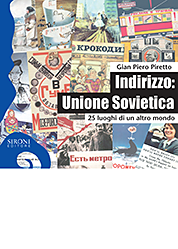

Foreign Rights contact
Doriana Rodino
phone +39 02.58.45.981
fax +39 02.58.45.98.96
rights@alphatest.it


Doriana Rodino
phone +39 02.58.45.981
fax +39 02.58.45.98.96
rights@alphatest.it

An introduction to interactive epistemology

With this book you will discover that behind the awkward researches that won Ig Nobel prize there is real science, the same that makes science it is possible to reach great achievements.

This book contains a complete history of electromagnetism, and the biographies of the scientist who discovered it: Ørsted, Ampère, Farady and Maxwell.

Past, present and future according to the yellow family

What is an untouchable number? Does the Earth have only one moon? Is it possible to go fasten as light in the real world? Who is HeLa? If you want to know the answers to these questions, and many more, this book is what you need.

The set theory and the concept of infinity. Let’s explore one of the most studied idea in mathematics, logic, and also in philosophy.

Starting from their own experience, the two scientists guide us on a wonderful journey to discover the egg across biology, art, literature, sociology, and – of course – gastronomy.

This project sparks from the predmetnyj mir (the world of things) of the Soviet era. Every “object” comes with a synthetic “cultural history”.

The author of successful Physics on a Sunday still stimulates the curiosity of readers with his easy and comprehensible dealing with scientific topics – physiology, chemistry, neuroscience and human studies.

Emma Darwin was much more than an English well-educated, rich, sensible, and engaged woman of the XIX century. And she certainly was not only Darwin’s wife...

This project sparks from the predmetnyj mir (the world of things) of the Soviet era. Every “object” comes with a synthetic “cultural history”.

The story of Pinocchio is taken as an excuse to explain the best known and
interesting logical paradoxes in an amusing way.

From Neanderthal to Metallica, from Pythagoras to neuroscience, this book tells the state of the art in research about our relationship with music, and ends up depicting the birth of a new science.

Are winning technologies always the best ones? Do new technologies always replace the old ones? And is every possible innovation really bound to happen, after all? We can find the answers while reading the tales of “technosaurs”.